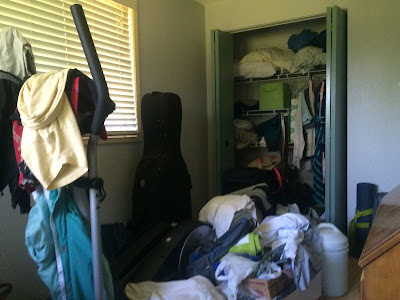This week on call was a tough one for me. Every week on call can be difficult, but this week I encountered a situation that I still have not been able to fully process.
We
admitted an elderly man early in the evening, in his 70’s, with ascites, severe
abdominal pain, and hypoxia. Lab tests
showed bacterial peritonitis (an infection of the fluid that had built up in
his abdomen) and Hepatitis C, with the beginnings of liver and kidney failure. We put him on oxygen, and I started him on
high-dose antibiotics. He was unable to
eat or walk. I discussed all of this
with his family the day after his admission, and they seemed to understand the
severity of his illness, and seemed eager to continue his treatment.
That
evening, after just 24 hours of admission, the family decided that he was not
getting better fast enough, and so they wanted to take him home. I explained that, due to the severity of his
illness, if they took him home, he would most likely die on the trip. I explained that the oxygen and antibiotics were
the only things keeping him alive, and it would take more than 24 hours to see
any improvement.
It
has been my experience here that families want their loved ones to stay in the
hospital if they are sick, even when we tell them that the patient’s illness is
terminal, and the patient would be more comfortable at home. They tell us
taking them home is seen as abandoning them, refusing to help them, and this
will cause the whole community to judge them. So this family’s request was very
strange. Strange not just for me, but
also for the Cameroonian nurses involved with his care. But they insisted “We will take him
home”.
So I
asked some more questions. They said,
yes they were worried about cost, but their main concern was that, because the decision to bring him to the
hospital had been theirs, if he died here, the rest of the family would blame
them for his death. They believed that if they took him for the several
hour trip over rough roads by a public taxi, they could deliver him to another
family member. It would be the other
family member’s responsibility to take care of him and if he died there, they
would not be blamed.
So
they left – ending treatment, and refusing to take any pain medications with
them.
No amount of reasoning by me or the nurses would
change their minds. I harbor no false
hopes that he survived the trip. I do
pray he did not have to suffer long. I
pray that his soul is resting in peace. I can’t help but add to this prayer the
hope that IF his family would be making decisions for another person they will
be thinking more of the patient’s needs than how they may be judged by others. And yet I know there are complexities to
relationships, and responsibility here I cannot possibly understand. This week on call was a tough one for me.




